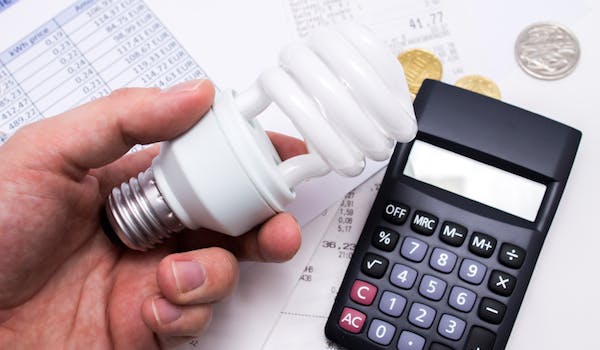Competition tsar Rod Sims has informed SMEs they should expect an annual cost saving of between five and ten per cent on their energy bills as a result of the carbon tax repeal.
In a speech to the Energy User’s Association of Australia Conference in Melbourne, Mr Sims said larger energy users would reap even more significant savings from the repeal.
The Australian Competition and Consumer Commission chairman said businesses were complying with his agency’s new powers to ensure cost savings from the carbon tax repeal were being passed on and was optimistic about how the process was unfolding.
In February, the watchdog was charged with a new price monitoring function by Treasurer Joe Hockey and has issued over 250 “carbon tax removal substantiation notices” to a range of electricity and gas retailers.
The recipients of the notices were required to detail to the ACCC how the repeal would affect their input costs and pricing schemes. They were required to place the explanation on their websites.
“Compliance with the substantiation requirements has been high; we even received more substantiation statements than expected,” said Mr Sims. “This shows that businesses supplying regulated goods are taking the ACCC’s role and powers seriously, and are conscious of doing the right thing.”
“Many of you will have seen your energy suppliers’ substantiation statements on their websites, and by now those of you that are a customer of an energy retailer should have received a customer statement from them, either individually or as a commercial customer.”
Mr Sims said electricity and gas retailers has proved successful in providing statements identifying the cost savings arising from the repeal to their different classes of customers.
The ACCC is looking at the substantiation statements and will provide its next quarterly report to government by October 28.
From its assessment of information provided so far, Mr Sims said the ACCC believed SMEs would claw back savings of between 5.2 per cent and 9.7 per cent per year.
The jurisdiction with the highest average savings is the ACT, with SMEs in the nation’s capital expected to claw back between 9.3 and 9.5 per cent per year on the cost of their energy bills.
Some businesses in Victoria will receive more, with annual savings ranging from between 7.4 and 9.7 per cent.
In NSW, SMEs can expect savings of between 7 and 8.3 per cent per year while in Queensland savings will be between 8.5 and 9.1 per cent
South Australia has lowest savings per year, with prices to come down by between 5.2 and 6.3 per cent.
“These represent significant savings which, as I have said, we are still assessing. For larger users, likely all of you, however, the savings will be larger as your network costs are a smaller part of your energy bill.
“In some cases, the savings could be a multiple of those shown… The ACCC had an enforcement role on the way in and now it has a separate enforcement role to deal with the repeal. So our motto is: what went on should not come off.”
Mr Sims also touched upon the recent draft review of competition led by Professor Ian Harper, saying it had touched upon important areas of microeconomic reform.
However, the ACCC revealed last week that it was uncomfortable with the proposal to split up the competition watchdog so as to separate its advocacy and enforcement role from its function as an access and pricing regulator.
“The Harper Panel recommends a separate access and pricing regulator that would, in essence, undertake the roles currently performed by the AER, as well as the ACCC’s functions in relation to telecommunications access, transport and water,” Mr Sims said on Friday.
Mr Sims said there were further questions the ACCC would put to the Harper review on the merits of this proposal.

